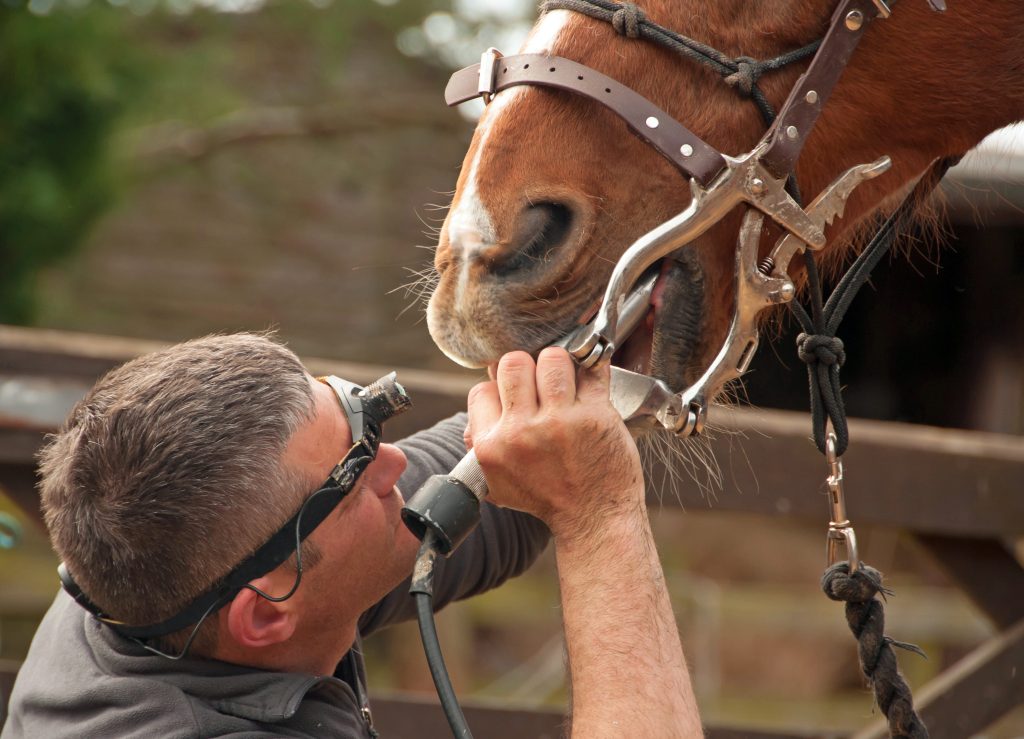For horse owners, recognizing the signs of dental pain in horses is crucial for maintaining the health and well-being of their beloved animals. Horses, like humans, can experience a range of dental issues that may cause discomfort or pain. Understanding these signs is vital for prompt treatment and prevention of further complications.
Horses have unique dental structures that require regular care and attention. Ignoring these needs can lead to severe consequences, including weight loss, behavioral problems, and even systemic health issues. Therefore, it’s important to be vigilant about your horse’s dental health to ensure it remains in top condition.

The Importance of Equine Dental Health
Healthy teeth are essential for a horses overall well-being. Proper chewing is necessary for effective digestion and nutrient absorption. Any disruption in dental health can lead to inadequate nutrition and subsequent health problems. Regular dental check-ups are as important for horses as they are for humans.
Common Dental Issues in Horses
Horses are prone to various dental issues, including sharp enamel points, hooks, ramps, and wave mouth. Each of these conditions can cause pain and discomfort, and recognizing their symptoms early can prevent long-term damage.
Why Regular Dental Check-Ups are Essential
Routine dental examinations help in identifying potential problems before they escalate. A qualified equine dentist can provide necessary treatments, such as floating, to maintain optimal dental health. For more information on why horses need dental work, you can visit this link.
Recognizing Signs of Dental Pain
Identifying the signs of dental pain in horses requires a keen eye. Horses cannot verbalize their discomfort, so it’s up to the owner or caretaker to notice changes in behavior and habits.
Changes in Eating Habits
One of the most common indicators of dental pain is a change in eating habits. Horses may start dropping food, chew awkwardly, or show reluctance to eat. These signs can indicate discomfort in the mouth that needs to be addressed.
Behavioral Changes
Horses experiencing dental pain might exhibit behavioral changes such as irritability, head tossing, or resistance to the bit. These behaviors are often a horse’s way of expressing discomfort.
Physical Symptoms
Physical signs such as bad breath, swelling around the jaw, or the presence of blood in the mouth can also indicate dental problems. If you notice these symptoms, it’s essential to consult an equine dentist immediately.
Professional Diagnosis and Treatment
Once you suspect dental pain, a professional diagnosis is necessary. An equine dentist can perform a thorough examination to determine the extent of the issue and recommend the appropriate treatment.
Diagnostic Procedures
Diagnostic procedures may include a visual examination, palpation, and possibly x-rays to get a complete picture of the horse’s dental health. Early diagnosis is crucial for effective treatment.
Treatment Options
Treatment options vary depending on the issue. They may include floating (filing sharp edges), extractions, or other dental procedures. Regular dental care can prevent many of these problems from occurring.
Preventative Measures
Preventing dental issues is always better than treating them after they arise. Regular check-ups, a balanced diet, and proper dental hygiene can help maintain your horses dental health.
Regular Dental Maintenance
Regular dental maintenance involves routine check-ups and floating as necessary. A schedule should be discussed with your equine dentist based on your horse’s age and dental history. For more details on equine dental care, see this resource.
Diet and Nutrition
A balanced diet is crucial for healthy teeth. Ensure your horse receives adequate nutrition to support dental health. Poor nutrition can exacerbate dental issues and lead to other health problems.
Proper Dental Hygiene
Practicing good dental hygiene can prevent many common dental issues. Regular cleaning and check-ups will ensure that your horse’s teeth remain in good condition throughout its life.
Additional Resources
For further reading on equine dentistry, you can refer to external resources such as Equine Dentistry at Janssen Vet Clinic.
Conclusion
Understanding and recognizing the signs of dental pain in horses is vital for any horse owner. Prompt attention to any changes in behavior or physical symptoms can prevent serious health issues and ensure your horse remains happy and healthy.

FAQ
What are the common signs of dental pain in horses?
Common signs include changes in eating habits, behavioral changes, and physical symptoms such as bad breath or swelling.
How often should horses have dental check-ups?
It is recommended that horses have dental check-ups at least once a year, though more frequent visits may be necessary for older horses.
What should I do if I suspect my horse has dental pain?
If you suspect dental pain, contact an equine dentist for a thorough examination and appropriate treatment. Early intervention is key.
This article contains affiliate links. We may earn a commission at no extra cost to you.
